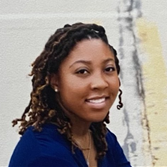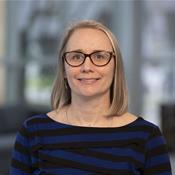What is Environmental Studies?
Bellarmine offers two separate degrees in the field of Environmental Studies: A Bachelor of Science degree in Environmental Science and a Bachelor of Arts degree in Environmental Justice and Sustainability.
The B.S. in Environmental Science examines ecological processes, the causes and consequences of human impacts on the natural world, and technologies needed to minimize or mitigate environmental problems. Graduates with an Environmental Science degree are best prepared for graduate work and careers in environmental technology, environmental monitoring, conservation biology, ecology, environmental health, and environmental science research.
The B.A. in Environmental Justice and Sustainability emphasizes the political, economic, and sociological aspects of environmental issues. This degree is more appropriate for students intending to pursue graduate study and careers in environmental planning, environmental law, environmental justice and advocacy, sustainability consulting, sustainable development, international development, environmental communications, and environmental education.
What makes Bellarmine’s approach to Environmental Studies stand out?
Bellarmine’s liberal arts tradition complements the interdisciplinary nature of Environmental Studies, where the coursework interfaces with fields like biology, chemistry, public health, anthropology, political science, economics, data science, and more. Students in our Environmental Studies programs receive a holistic education that prepares them for life beyond professional skill-building and career-readiness.
Our location in Louisville is also an asset. Our 145-acre campus features a campus farm, beehives, pollinator gardens, and a nationally recognized tree canopy committed to native pollinators with Tree Campus USA and Bee Campus USA designations. Within walking distance from our campus are nature preserves, the Louisville Zoo, and the Olmsted Parks Conservancy, all offering educational programming and internship opportunities for students.
In the metro Louisville region, we have access to numerous non-profits, corporations, government agencies, and other organizations that provide opportunities for students to get hands-on experience in the professional world through immersive field trips, mentorship, internships, and job shadowing opportunities.
The Student Perspective
 Karisma Burnett is a junior studying Environmental Science. She was first drawn to the field while learning about the impact of microplastics on the environment during a high school biology class. A fascination with how human activities can impact the environment led Burnett to pursue Environmental Science in college.
Karisma Burnett is a junior studying Environmental Science. She was first drawn to the field while learning about the impact of microplastics on the environment during a high school biology class. A fascination with how human activities can impact the environment led Burnett to pursue Environmental Science in college.
Here’s what Burnett had to say about her experience in Bellarmine’s Environmental Science program.
Q: How has your experience in this program helped you prepare for life after Bellarmine?
KB: In a professional sense, built into the requirements is you have to do an internship. I think that's really good because it gets you to think about what you would want to do or how you can build skills and a resume. Also, they bring in a lot of alumni that are working in the field and let us talk to them about their experience. So, it shows you how you could go about things or just gives you an idea of what the path was like for other people.
Q: What about the Environmental Studies program has stood out to you?
KB: What has stood out to me is the community engagement aspect. I've taken a few courses where we've worked with non-profit organizations to help them, and then they help us by giving us an education. Working with non-profit organizations was a surprise to me because I never really thought of that when going to school.
Q: How did that experience inform your academic studies?
KB: I feel like that will help me get a better sense of how to interact with people on a professional level. When you're in a university setting, you're with a particular group of people and we're all kind of doing the same thing. But then you hear about other people's experiences, and it makes you more excited to do the work and continue your education.
Q: How would you describe the learning environment at Bellarmine and in the Environmental Science program specifically?
KB: It's very tight knit. It's a very small community, so it's very welcoming. The teachers are able to talk to you one-on-one and I've never had a professor that I can't reach out to and tell them something's going on or I need more time with [an assignment]. They're able to give you that feedback and really help you.
Q: What does that close connection with professors do for your studies and your experience going through college?
KB: It keeps you motivated and it makes it feel like less of a pressured environment. It just feels more relaxed and chill and inspiring because [the professors are more personable], so it's not like you're in a big classroom and you don't know anything about your professor and they’re just lecturing at you. I really like the environment at Bellarmine because of that.
Q: Have you participated in a study abroad experience?
KB: I did a study abroad experience my freshman year, it was a Tropical Marine Biology course. We learned about the island of San Salvador in the Bahamas and then we took a trip there during spring break. That was a fun experience. The main objective of it was to identify organisms, take pictures, have experience snorkeling, and learn about the culture in the Bahamas.
Q: What would you say to a prospective student interested in studying Environmental Studies at Bellarmine?
KB: I would say you don't necessarily have to know exactly what you want to do with it because it's such a broad field that through the classes you'll realize what you want to do. So don't be afraid to jump into the program and just take it step by step and then learn throughout your journey in college.
Q: How has Bellarmine’s liberal arts curriculum influenced your education and the study of your major?
KB: I think it widens the perspective a little bit. With classes that are history-based, or social sciences, it really feeds into Environmental Studies and different avenues of the field. So, I think it reinforces what we're learning and makes you want to dig a little bit deeper as well. It gives you a broader education.
Q: Do you feel like your experience in this program has helped you find a purpose or calling for life after college?
KB: As for my career I think it does. It kind of sets me up for how to go about finding a company that I would want to work for and also what community I want to impact. And then I think the liberal arts aspect of the university has helped me broaden my horizons a little bit with learning people skills and things like that.
The Faculty Perspective
 Dr. Kate Bulinski is an Associate Professor in the Department of Environmental Studies with interests in invertebrate paleontology, paleoecology, coral-rich ecosystems of the Paleozoic, geoscience education, and faith and science dialogue. Her current projects include researching the paleoecology of the Falls of the Ohio River.
Dr. Kate Bulinski is an Associate Professor in the Department of Environmental Studies with interests in invertebrate paleontology, paleoecology, coral-rich ecosystems of the Paleozoic, geoscience education, and faith and science dialogue. Her current projects include researching the paleoecology of the Falls of the Ohio River.
Bulinski says Bellarmine’s Environmental Studies department stands out for its experienced faculty, a curriculum designed for the challenges of the 21st Century, and a dedication to educating the whole person.
“We have three full-time faculty members who represent specialization in several complementary disciplines—aquatic ecology, sustainability studies, environmental justice, geography, geographic information systems, geology, and paleontology—and a number of part-time and affiliated full-time faculty who bring additional expertise in environmental education, environmental law and policy, environmental anthropology, eco-theology, public health, botany, and more,” Bulinski says.
This spectrum of expertise supports a curriculum designed to meet the needs of the environmental careers of the 21st Century. A focus on hands-on learning further prepares students for careers in their field of choice, and departmental graduates have enjoyed immediate job placement in corporate, government, non-profit, and education fields, as well as placement in competitive graduate programs and law schools.
“We often get out of the classroom to learn first-hand the kinds of skills and experience necessary for the environmental profession,” Bulinski says. “We also offer students the opportunity to pursue research under the direction of one of our faculty members in a variety of different disciplines. These experiences provide our students with the kind of transformative education that leads our alumni towards lives and careers of meaning and purpose.”
All Bellarmine students receive intentional advising from peer coaches, professional advisors, career coaches, and faculty advisors. The Environmental Studies department incorporates additional career development events and workshops, including creating resumes and cover letters, attending career fairs, and participating in alumni mentorship programs.
With this approach, Bulinski says the department offers a life-changing student experience dedicated to providing the education and skills students need to be successful.
“As you discern which college or university you would like to attend, think about what you value and what you would like your college experience to look like,” Bulinski says. “In the Department of Environmental Studies, you would be a valued member of our community, working with us on shared goals to transform ourselves, our community, and our world into a better place. We would love to have you join us!”